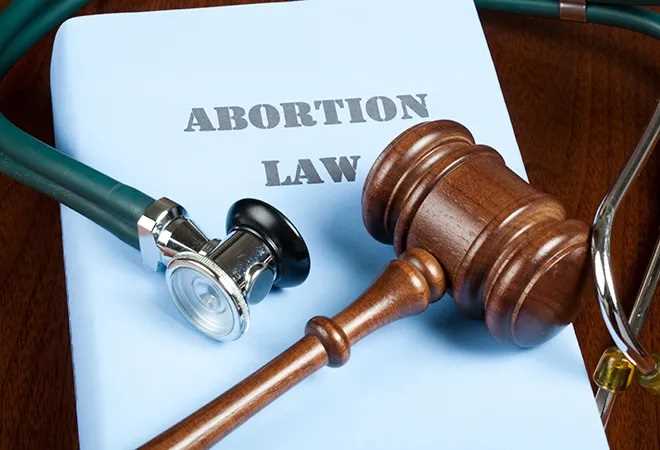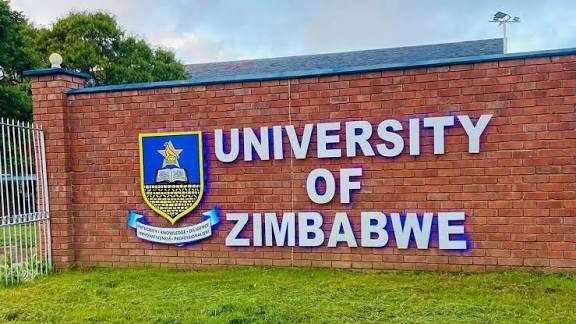
Mlondolozi Ndlovu
The Termination of Pregnancy Act (hereinafter referred to as the Act) is a legal instrument that governs the lawful termination of pregnancy in Zimbabwe.
It was enacted in 1977 by the Parliament of Rhodesia and effective starting 1 January 1978. It was retained after Zimbabwe’s independence in 1980.
The Act provides only three grounds under which pregnancy can be lawfully terminated in Zimbabwe.
Pregnancies can only be terminated by a registered medical practitioner authorized by a court order.
Grounds for termination
If the pregnancy endangers the life of the mother and could result in permanent impairment to her physical health it can be terminated. In such instance the pregnancy can be lawfully terminated under certification of two registered medical practitioners who must certify that the termination is necessary and safe.
Secondly, abortion may be authorized when there is a risk that the child to be born will suffer from a physical or mental defect which are a serious risk to them.
The physical or mental defect must be of such a nature that the child to be born will permanently and seriously be handicapped. This means that where the mental defect is likely to be temporary or deemed minor the abortion will not be authorized.
According to Section 5 of the Act, the medical superintended should not authorize abortion unless satisfied that the two medical practitioners have examined the pregnant woman and certified the termination.
Pregnancy can also be terminated where there is a reasonable possibility that the pregnancy was conceived as a result of unlawful intercourse. Unlawful Intercourse is described as ‘rape, other than rape within a marriage, and sexual intercourse within a prohibited degree of relationship i.e incest
In practice, it is a different story. Accessing safe, legal abortions on these grounds is difficult and rare hence prompting many to resort to unsafe and illegal abortions.
Read Mildred Mapingure v Minister of Home Affairs & 2 Ors HH 452/12, where Mapingure encountered difficulties in terminating her pregnancy based on the grounds of rape, as authorised by the Act.
However Section 5 (4) of the Act provided that permission could only be granted by the superintended of the institution after a certificate was issued by the Magistrate, and the medical practitioner to perform the termination was satisfied that a complaint of the alleged rape was lodged with the authorities.
Further on a balance of probabilities, the unlawful intercourse which resulted in the pregnancy had taken place. On enquiring from the public prosecutor on how she could get the certificate from the magistrate, she was misled to believe that the rape trial had to be completed first. Consequently, when she got the certificate, the hospital refused to perform the termination on the grounds that the termination was at an advanced stage.
Abortion on socio-economic grounds?
In the case of The State v Ncube CRB K55/22, it was re-affirmed that the Termination of pregnancy Act abolished the offense of common law abortion and outlines the circumstances in which a pregnancy can be legally terminated.
The conditions allowed in the Act are restrictive to a woman who is allowed to legally terminate a pregnancy. Henceforth in light of these provisions it is clear that in our jurisdiction it is unlawful to carry out abortion on socio-economic grounds.
Related Stories
Unlawful termination
In terms of Section 10 of the Act, no person is allowed to assist in the termination of pregnancy without legal authorization. No medical practitioner, nurse or any other person employed in a hospital is allowed to assist with unauthorized termination of pregnancy.
The criminal Law (Codification and Reform) Act [Chapter 9:23] in Section 60, defines unlawful termination of pregnancy and states that any person guilty of unlawful termination of pregnancy shall be liable to a fine not exceeding level ten or imprisonment.
It however provides that it shall be a defense if one can prove that the termination of the pregnancy occurred in the course of caesarian section while delivering the baby or under the Act.
Criticism of the Act
The Act defeats the purpose, aim, objective and constitutional goals achieved by the Constitution of Zimbabwe Amendment (No.20) Act, 2013 (henceforth referred as ‘the Constitution’) by limiting constitutional rights relevant to female autonomy. According to M O'Sullivan ‘Reproductive Rights’ these rights ( rights relevant to female autonomy) grouped together are called female reproductive rights inclusive of the right to life, human dignity, equality and non-discrimination, privacy, personal security, access to information and health care. The Constitution emphasizes, entrenches, respects, protects and provides that ‘every person has inherent dignity’.
In S v Makwanyane 1995 (3) SA 391 (CC), it was held that;
‘The right to life and dignity are the most important of all human rights, and the source of all other personal rights in the Bill of Rights. By committing ourselves to a society founded on the recognition of human rights we are required to value these 2 rights above others.’
This position was re-iterated in the Makwanyane & Anor v Minister of Justice 1999 (1) SA 6 (CC) at 28D-E. O'Sullivan argues that ‘denying a woman the freedom to make and to act upon a decision concerning reproduction treats her as a means to an end and strips her of her dignity’.
Thus, the Act treats women as mere objects subject to the will of others therefore, such an approach undermines the ability of women to act autonomously in regards to their reproductive rights, hence violating their constitutional rights to dignity promulgated in section 51 which states that ‘every person has inherent dignity in their private and public life, and the right to have that dignity respected and protected’.
One should bear in mind that as per section 86 (3) (b) the right to human dignity is absolute which is to say it must neither be violated or limited under any circumstances.
The Constitution makes an important recognition in section 52 (b) that ‘every person has the right to bodily and psychological integrity, which includes the right subject to any other provision of this Constitution, to make decisions concerning reproduction’.
This provision is of paramount importance because it allows one to make decisions concerning their reproduction which is inclusive of pregnancy termination.
In the case of Christian Lawyers Association v Minister of Health 2005 1 SA 509 (T) the South African court held that section 12(2) provides a woman with the constitutional right to terminate her pregnancy. Moreover, the constitutional provision gives women the power to enjoy and have control over their own bodies something that society has deprived them for ages.
Therefore, with regards to abortion women are in the best position to make a decision and thus, the state must provide the right to choose to terminate pregnancy and the means to do so safely.
In the Argentine appeal case of F. A. L. s/ Medida Autosatisfactiva (2012) the Court allowed termination of pregnancy which had been denied by the lower court. It was held further that, forcing a woman who had suffered a sexual abuse to carry a pregnancy to full term infringed the woman’s right to dignity and amounted to institutional violence.
Perhaps of greater interest is what the Court said about the obligations of the state. It held that the state had a duty to provide the conditions necessary to enable such women to access abortion quickly and safely. Further, the government should establish the procedures required to carry out legal abortions and eliminate any administrative obstacles, such as the requirement for third-party authorization.
This is in keeping with recommendations made by the World Health Organization (WHO), which urges states to remove administrative obstacles that prevent women from lawfully accessing abortion services. It calls on states to remove these ambiguities and doubts about the law so that women, health professionals, and other parties involved in the chain of service supply may all understand the policies and regulations and apply them effectively.
Mlondolozi Ndlovu is a Zimbabwean Media practitioner and media researcher. He is also a LAW student at the University of Zimbabwe, writing in his own capacity.




















Leave Comments